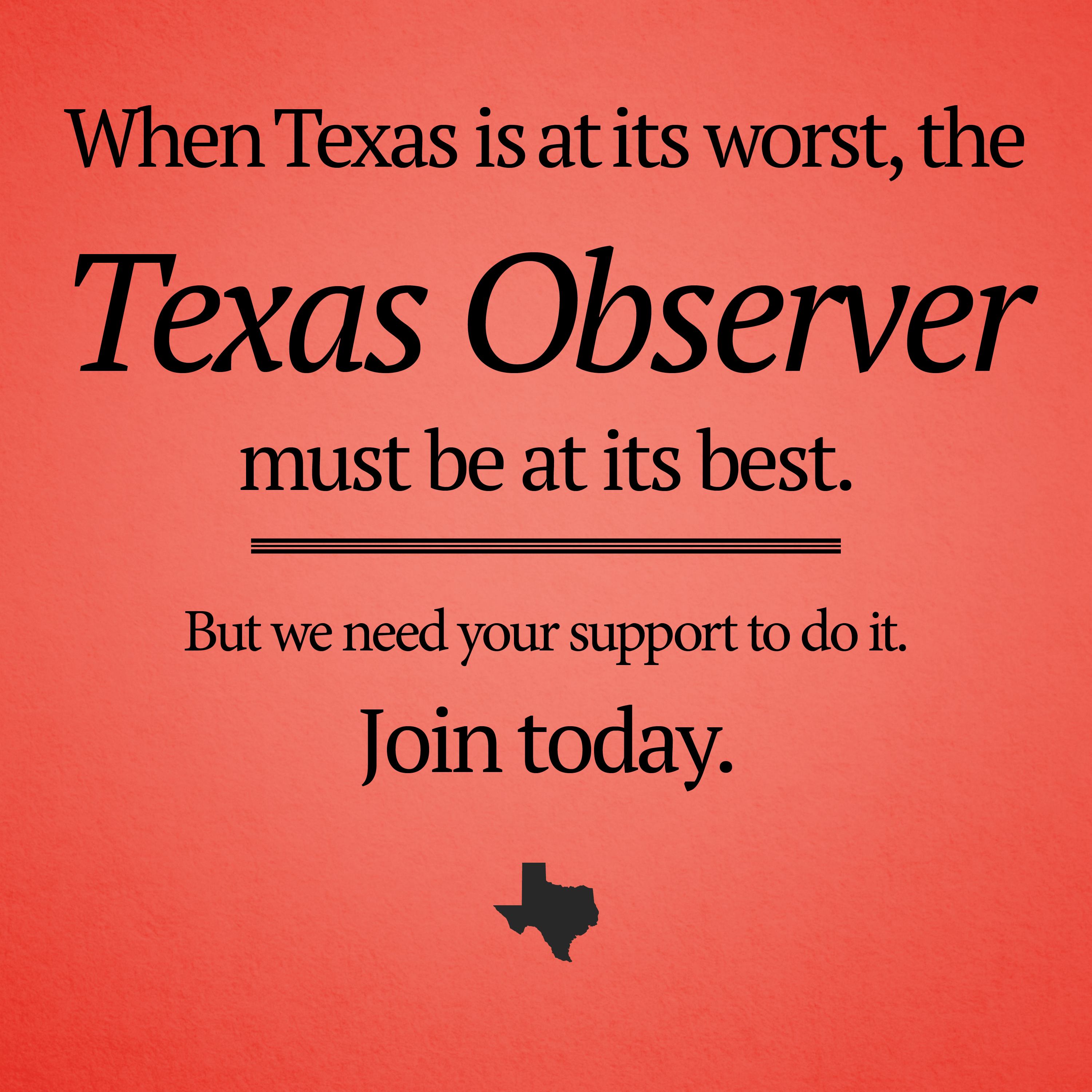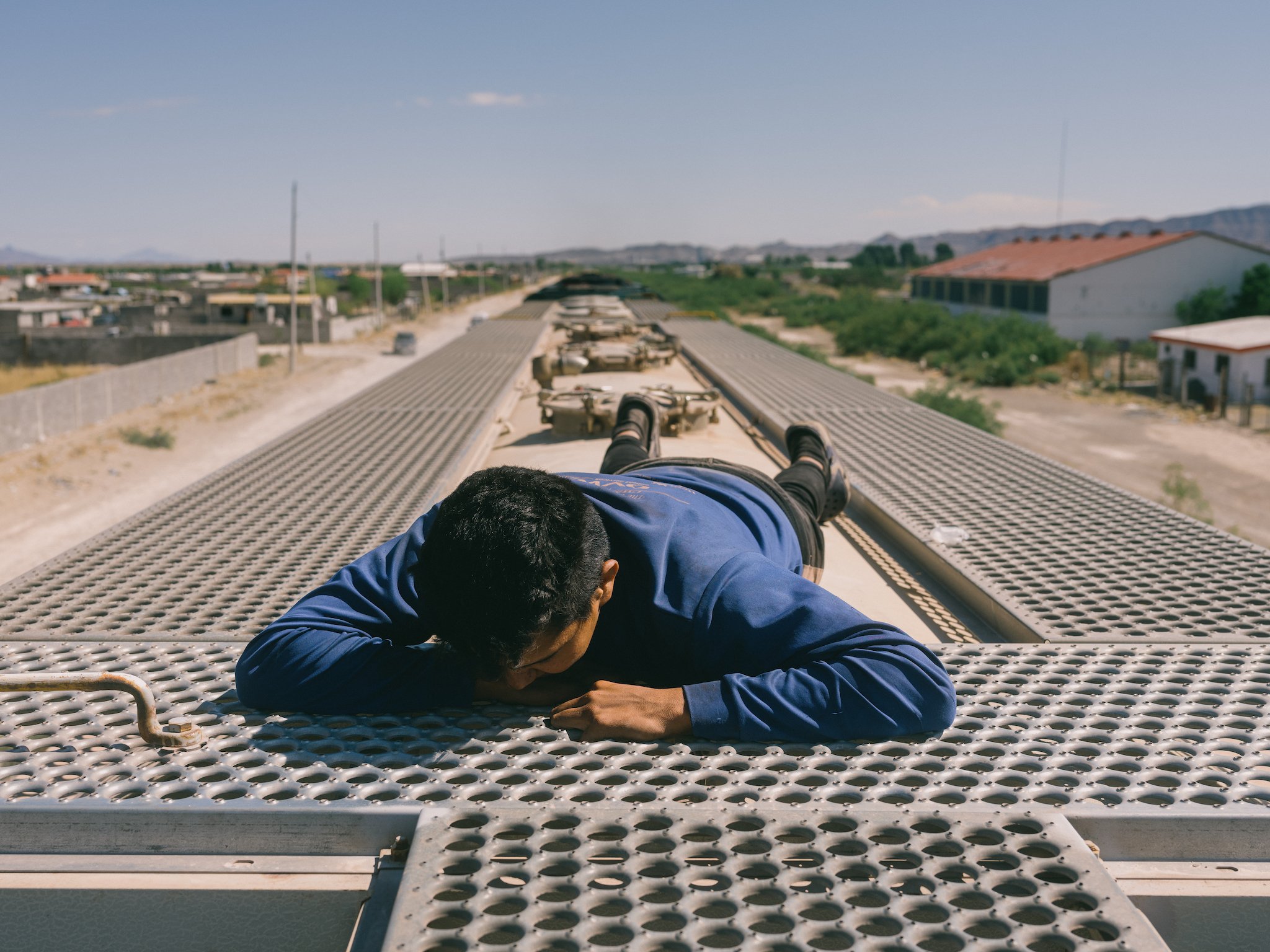
An Unwinnable Drug War
Threats to deploy U.S. troops to Mexico ignore an appalling reality that has already been a disaster for both nations.
A version of this story ran in the March / April 2024 issue.
I was born and raised in Mexico and lived at the Texas-Mexico border for eight years. As a professor at the University of Texas at Brownsville, now the University of Texas Rio Grande Valley, I began to research Mexican organized crime groups that operate transnationally. Since 2009, I have studied illicit networks involved in U.S.-bound migration and the drug trade. My interests have to do mainly with the fact that I started my U.S. academic career as an immigrant, some of my relatives arrived here as undocumented immigrants, and because my father and brother were victims of extortion by Los Zetas in 2006.
Over the years, I’ve interviewed countless victims of border violence—as well as its facilitators and perpetrators, analysts and narrators—and exposed disturbing myths about the players in the so-called “drug war.” To understand the dynamics of this armed conflict, we must admit that our main border security problems aren’t really about drugs or narcos at all. Otherwise, both the United States and Mexico risk wading into the quagmire of another unwinnable war.
In 2017, I published Los Zetas Inc.: Criminal Corporations, Energy and Civil War in Mexico, the product of several years of fieldwork in places like Tamaulipas, then one of Mexico’s most violent states. I lived just 15 minutes away by foot, via Gateway International Bridge, from Matamoros, the birthplace of the Gulf Cartel, the drug trafficking organization that later paved the way for the formation of the brutal Zetas.
I often spoke with people, some of them my students, who lived in extreme fear from 2010 to 2015—the worst times of the ruthless fight between Los Zetas and the Gulf Cartel, which some call the “war for Tamaulipas.” They shared stories about kidnappings, extortions, shootings, mass murders, and other atrocities committed by criminal paramilitary groups and their allies. People in Tamaulipas generally refer to la maña [the knack], when they talk about such violent crime groups. In those years, la maña was out of control.
Various narratives influenced my research: media coverage of the drug trade and “Mexican cartels,” U.S. law enforcement statements, and those from Mexico’s federal government in the era of the war on drugs declared by former President Felipe Calderón. Those were the times of the Merida Initiative, when the United States and Mexico collaborated closely in anti-narcotics operations and supported a militarized strategy to confront what people know as el narco or the Mexican cartels. I initially thought that the brutal war declared by the Mexican government and the exponential increase in homicides were all drug-related, as many still believe.
But my personal experience illuminated a different reality.
I sought to understand those homicides, (in)security in Mexican borderlands, and any spillover violence in Texas. I traveled to many territories allegedly controlled by Los Zetas, an organization that had changed the configuration of organized crime in Mexico. After years of interviews—with people affected by organized crime, law enforcement agents, security experts, and journalists—and by interacting with bloggers and Twitter users covering the drug war, I realized that the story was far more complicated.
The violence was indeed related to drugs but had more to do with the economic incentives of transnational corporations than is generally acknowledged. In my book, I explained how the Mexican government’s war—supported (and even guided) by the United States—was more about land ownership and use and the control of natural resources such as oil, natural gas, coal, water, lithium, and iron ore.
Corporations—criminal ones and legitimate multinational businesses—benefit from such armed conflicts. The biggest winners were part of the “border security/military-industrial complex,” arms-producing firms and military contractors, large energy companies, and players in the financial markets (banks and other intermediaries). The biggest losers were Mexico’s industry of hydrocarbons (once concentrated in Petróleos Mexicanos or PEMEX) and the Mexican people.
The Mexican government’s commitment to a “war” has changed since a new president arrived in 2018; Andrés Manuel López Obrador’s revamped federal government promised “hugs, not bullets.” But those leaders have since extended the capacity of the armed forces to previously unimaginable levels, created the National Guard, and conferred the leadership of most forms of federal security on the Secretariat of National Defense. Mexico’s armed forces now control ports, customs, and military routes and are involved in the construction and operation of major infrastructure projects previously handled by the civil sector, such as the Maya Train, the Interoceanic Corridor of the Isthmus of Tehuantepec, and the Mexico City regional airport.
Yet, the continued militarization of Mexico’s anti-narcotics operations has failed to solve the drug problem up north. Despite billions of dollars of taxpayers’ money, more drugs than ever enter the United States. Worse, the country is suffering from a fentanyl crisis that has killed hundreds of thousands of people. According to the Texas Department of State Health Services, more than five Texans die every day from fentanyl. Meanwhile, Mexico has lost hundreds of thousands of citizens due to its drug war, which led to exponential increases in homicide rates and the number of disappeared people.
It is thus appalling that these tragic experiences failed to radically change our binational strategy. Instead, militarization continues. Key U.S. politicians—many from Texas—and others blame solely the “cartels” for the fentanyl crisis. Former President Donald Trump, now again a candidate, and Texas Representative Dan Crenshaw have discussed the possibility of “bombing” the cartels. Some label fentanyl as a weapon of mass destruction and propose to designate Mexican cartels as foreign terrorist organizations or even “declare a war” to justify the utilization of U.S. military force directly on Mexican soil.
All this talk is based on a fundamental mistake—an erroneous use of the term “cartel” and a distorted perception of the power of these groups and their leaders inspired by cultural representations like Netflix’s Narcos series and pop culture more generally. In reality, our hemisphere’s drug consumption problem is not mainly the responsibility of these cartoonish TV drug lords or narcos like Pablo Escobar or Joaquín “El Chapo” Guzmán. It is mainly an issue of public health, and Big Pharma plays a huge role.
The word “cartel” is widely used, even by members of organizations dedicated to the drug trade. But these crime groups fail to meet the definition in economic terms: They do not form an oligopoly, nor do they establish agreements to control supply (and prices) to maximize profits. They lack the capacity to negotiate peacefully among themselves or with governments.
Instead, increasingly fragmented groups fight over individual drug markets (plazas) or territories in Mexico. Economic theories that explain the formation of cartels, which function in the business world like oligopolies, cannot accurately be applied to this complex criminal world, which includes actors in drug trafficking organizations, criminal paramilitary groups, and other groups that specialize in extortion, kidnapping migrants, smuggling people, or stealing fuel.
Declaring a war on the cartels would be declaring a war on our neighbors.
Real cartels, as defined by economists, do exist in the oil and gas industry and telecommunications, for example. Big Pharma is the world’s biggest drug cartel.
But when talking about the illicit drug trade, there are no visible cartels. We are instead referring to networks formed by sellers of drug precursors, drug manufacturers, brokers, wholesalers and retailers, and other participants in drug markets of different nationalities, including U.S. citizens, as well as corrupt customs officers and law enforcement agents, financial intermediaries, killers, and lookouts. These configurations of illicit drug markets are the result of the United States’ long-term anti-narcotics programs imposed upon countries such as Mexico and Colombia.
So it’s mystifying that the United States continues implementing failed policies such as the kingpin strategy of targeting drug lords and militarized drug enforcement focused on its shared border with Mexico and on Mexican (and not U.S.) drug routes. What’s more, it is extremely problematic that some leaders—many from Texas—are calling for the use of U.S. military forces in Mexican territory. This is a recipe for failure and an effective engine for further destruction, death, and war crimes.
“Bombing” the cartels would mean bombing residential neighborhoods. It is impossible to isolate the criminal groups dedicated exclusively to smuggling drugs from organized crime groups focused on other activities, like money laundering, and from noncriminal members of Mexican communities. These ecosystems include legitimate businesses and individuals. Declaring a war on the cartels would be declaring a war on our neighbors.
Nobody denies that extreme levels of violence and brutality in Mexico are connected with the drug trade. Something needs to be done, but deploying U.S. troops would only escalate a costly and ineffective drug war and put many innocent lives at risk. Such a military intervention (or invasion) could also affect U.S. national security since rivals, mainly Russia and China, could offer support to a resentful Mexico.
Instead, we should address the root causes of violence in Mexico—including poverty, inequality, corruption, impunity, and arms trafficking. We should examine the plight of Central American refugees fleeing similar failed drug wars. And the United States should focus on the demand side of illicit drug markets and on fighting addiction within its borders. Experience has already demonstrated that a war on “cartels” is unwinnable.



